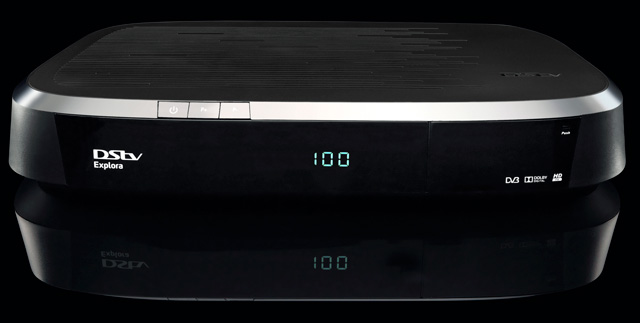
The number of video-on-demand (VOD) subscribers in sub-Saharan Africa will grow by one million in 2014, despite the lack of broadband infrastructure in the region, according to a new report.
However, most of those subscribers will receive VOD-based services not over broadband connections but over traditional satellite television services, which will push and store VOD content on products like MultiChoice’s DStv Explora personal video recorder (PVR).
This is a key finding in Deloitte’s newly published “Technology, Media & Telecommunications Predictions 2014” report, which finds that instead of having access to an unlimited selection of VOD titles online, most viewers in sub-Saharan Africa will select movies and television programmes from a catalogue of hundreds of titles that have already been pushed and stored to their PVRs.
“This user behaviour will be the equivalent of that taking place in millions of broadband-equipped homes around the world,” Deloitte says. “However, in sub-Saharan Africa, VOD content will play back from digital video recorders and the files will have been distributed principally via satellite links, and for a few households via digital terrestrial transmission.”
Although VOD has reached maturity in hundreds of millions of homes worldwide, sub-Saharan Africa has “not participated in the wave of VOD adopting, in most part due to the lack of fixed broadband infrastructure”, the report finds, adding that only 1% of people in the region have access to fixed broadband.
“At their peak in the 1970s and 1980s, copper networks were never extensive, and following the liberalisation of most markets in the 1990s, capital poured into mobile infrastructure, leaving fixed infrastructure on the sidelines.”
However, even though mobile broadband is more commonplace, with 13% penetration, Deloitte says the price (on average about 50 times prices in the European Union, it says) and limited reach make it “unsuitable for bandwidth-hungry services like VOD”.
However, VOD is a “desired service”, especially in more well-to-do households in South Africa and Nigeria, whose citizens account for over 50% of consumer spending in sub-Saharan Africa. “In these countries, and in a growing number of wealthier capital cities across the continent, there is considerable buzz about the availability of VOD services in developed countries. Satellite and DVRs can provide a solution that replicates a VOD experience.”
The increasing capacity of hard drives has helped make it possible to deliver VOD using satellite technology, Deloitte argues. “When digital video recorders were first launched at the turn on the millennium, the size of hard drives, at about 80GB, meant that it was best to let the user select what to record,” it says.
“Now that the price of hard drives have fallen such that digital video recorders are available with several terabytes of capacity and multiple tuners, the machines can also serve as a repository for hundreds of titles.

“A 2TB drive can hold about 1 600 hours of standard-definition video. Complemented by five tuners, this should be enough to allow users to record the specific programmes they want to save, and leave sufficient tuners and hard disk capacity for a substantial local VOD cache, filled with what are expected to be the most demanded movies, programmes or even short video clips.”
Deloitte believes this will satisfy demand among consumers in the region, despite the fact that satellite-based VOD services can’t offer the same wide choice of content as online players like Netflix.
“A broadband-delivered VOD service offers infinite choice in theory, but the range of content could over-serve the market as actual demand for on-demand content tends to be narrow and predictable — usually for programmes with the highest live ratings, or movies with the greatest box office success,” the report says. “It should be a relatively simple matter to predict and distribute content sufficient to meet 95% of requests.”
Until fixed broadband connections in sub-Saharan Africa have been rolled out more extensively — something that will only happen in the long term — VOD “needs to work within existing parameters”, Deloitte says. That means blending satellite and hard disk technology to offer an alternative solution. — (c) 2014 NewsCentral Media




